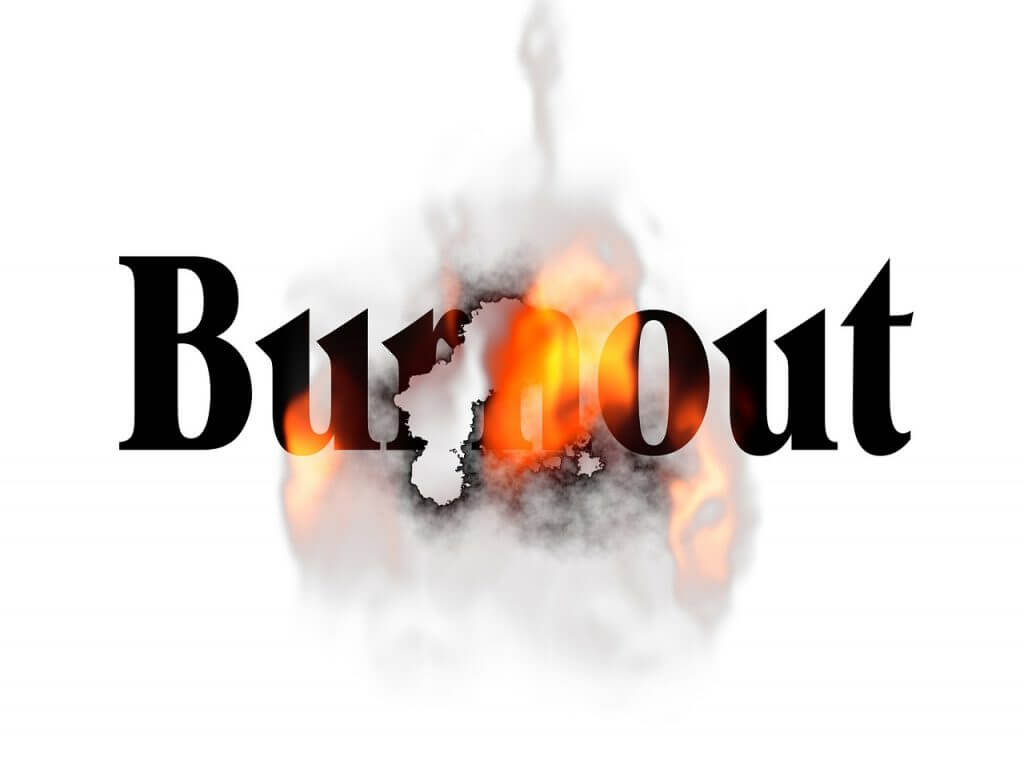How to Spot Burnout and Fix It Before It Ruins Your Semester

If you’re feeling burnt out before the end of your semester, there are some key signs to look out for and steps you can take to fix it. Here are some of the most common symptoms of burnout college students face, as well as some tips on how to deal with it.
It’s no secret that college can be overwhelming. With so much to do and so little time, it’s easy to feel like you’re constantly on the brink of burnout. But what if you’re already there? What if you’re feeling overwhelmed and stressed out all the time, to the point where it’s affecting your schoolwork and your mental health?
If that sounds like you, don’t worry – you’re not alone. Burnout is a common problem among college students, and there are steps you can take to address it. In this article, we’ll discuss what burnout is, how to spot the signs, and how to get help. We’ll also provide some tips for avoiding or recovering from burnout. So read on to reclaim control.
1. Feeling overwhelmed and stressed
There are a number of factors that can lead to college students feeling overwhelmed and stressed. One of the most common is the pressure to succeed.
With the high cost of tuition and the competitive job market, many students feel like they have to be perfect in order to get ahead. This can lead to a lot of stress and anxiety.
Another factor that can contribute to stress is financial insecurity. Many college students are struggling to pay for their education, and this can lead to a lot of financial worries.
Additionally, some students may have difficulty balancing work and school, which can also add to their stress levels. Fortunately, there are a number of things that college students can do to reduce their stress levels.
One of the best things is to make sure that you are taking care of yourself physically. This means getting enough sleep and exercise and eating a healthy diet.
Additionally, it is important to take some time for yourself each day to relax and de-stress. You can do this by reading, listening to music, or spending time with friends and family.
Finally, it is important to talk to someone if you are feeling overwhelmed or stressed. There are a number of resources available on campus, such as counseling services, that can help you deal with your stress. Don’t be afraid to ask for help!
2. Having trouble sleeping or feeling exhausted all the time
There are many reasons why a college student may be struggling to sleep or feeling exhausted all the time. Below are some steps and activities that can help fix the issue.
- Evaluate your sleep habits: Are you going to bed and waking up at consistent times? Are you sleeping for long enough? Are you using electronic devices in bed? All of these factors can impact how well you sleep. Try to make small changes to your routine to see if it makes a difference.
- Establish a bedtime routine: This could include reading, taking a bath, or listening to calming music. Doing the same things each night will help your body prepare for sleep.
- Avoid caffeine and alcohol: Both of these can interfere with sleep. Caffeine should be avoided in the afternoon and evening, and alcohol should be consumed in moderation.
- Get up and move: Exercise can help improve your sleep quality. However, it is important to avoid working out close to bedtime as this can make it harder to fall asleep.
- Seek help if needed: If you are struggling to make changes on your own, there are many resources available to help you. Talk to your doctor or a counselor about your sleep difficulties. They can provide guidance and support.
Don’t let your sleep and rest factors fall by the wayside. They’re how your body and mind are able to recover.
3. Irritability, mood swings, and feelings of emptiness or hopelessness
There are many factors that can contribute to irritability, mood swings, and feelings of emptiness or hopelessness in college students. Some of the most common include stress, homesickness, sleep deprivation, and social isolation.
Fortunately, there are a number of things that students can do to alleviate these symptoms. Exercise, for instance, has been shown to be an effective way to combat stress and improve mood.
Keeping a journal can also help to identify negative thought patterns and work through them. Finally, spending time with friends and family can help reduce feelings of loneliness and despair.
4. Experiencing physical symptoms like headaches, migraines, nausea, or chest pain
There are a number of potential causes for physical symptoms like headaches, migraines, nausea, or chest pain in college students. Some of the most common include:
- Stress: College can be a very stressful time for students. juggling academics, social life, and other responsibilities can be tough. This can lead to increased levels of stress, which can in turn cause physical symptoms like headaches or migraines.
- Poor diet: A lot of college students eat unhealthy diets that are high in processed foods and low in nutrients. This can lead to problems like fatigue, digestive issues, and headaches.
- Lack of sleep: Sleep is essential for our overall health and well-being. However, many college students don’t get enough sleep due to late nights studying or partying. This can lead to fatigue, concentration problems, and headaches.
Among the many steps that college students can take to reduce the risk of experiencing physical symptoms like headaches, migraines, nausea, or chest pain are:
- Managing stress: Stress management is key for college students. There are a number of ways to manage stress, such as exercise, relaxation techniques, and talking to someone about your concerns.
- Eating a healthy diet: A healthy diet can help improve your overall health and well-being. Make sure to eat plenty of fruits, vegetables, and whole grains. Avoid processed foods and sugary drinks.
- Getting enough sleep: Sleep is essential for our health. Make sure to get 7-8 hours of sleep each night. Consider going to bed and waking up at the same time each day.
If you are experiencing physical symptoms like headaches, migraines, nausea, or chest pain, it’s important to see a doctor to rule out any underlying medical conditions.
There are a number of treatments available for these conditions. Your doctor can help you find the best treatment plan for your specific situation.
5. Physical and Mental Malaise, Depression
Many college students experience other aches and pains in the body, especially the neck and shoulders. This can be due to stress and struggling to focus on tasks or remember things.
Additionally, many students lose interest in things they used to enjoy and withdraw from friends and family members. However, there are some steps and activities that students can adopt to help fix these issues as well.
We’ve already covered some of these at length, so we’ll just reiterate here and explain how they help with this specific issue.
- Getting enough exercise: This can help release tension and improve moods.
- Eating healthy: This can help improve energy levels and focus.
- Staying organized: This can help reduce stress levels.
- Spending time outdoors: This can help improve moods and relieve stress.
- Talking to someone: This can help release bottled-up emotions and provide support.
All of these steps are important in helping college students manage stress and improve their overall well-being. By following these tips, students can start to feel better both physically and emotionally. And that can make all the difference when it comes to succeeding in college.
If you’re a college student who is experiencing other aches and pains in the body, struggling to focus on tasks or remember things, losing interest in things you used to enjoy, or withdrawing from friends and family members, you’re not helpless. You do have effective options.
We’ve outlined some of these steps here, but it’s important to consult with a doctor if you are experiencing physical symptoms like headaches, migraines, nausea, or chest pain. There are treatments available for these conditions. Your doctor can help find the best treatment plan for your specific situation.
Start taking action today, and don’t let this semester end on a sour note. Share some of your helpful burnout tips in the comments section below!
[Featured Image by Pixabay Creative Commons License]








